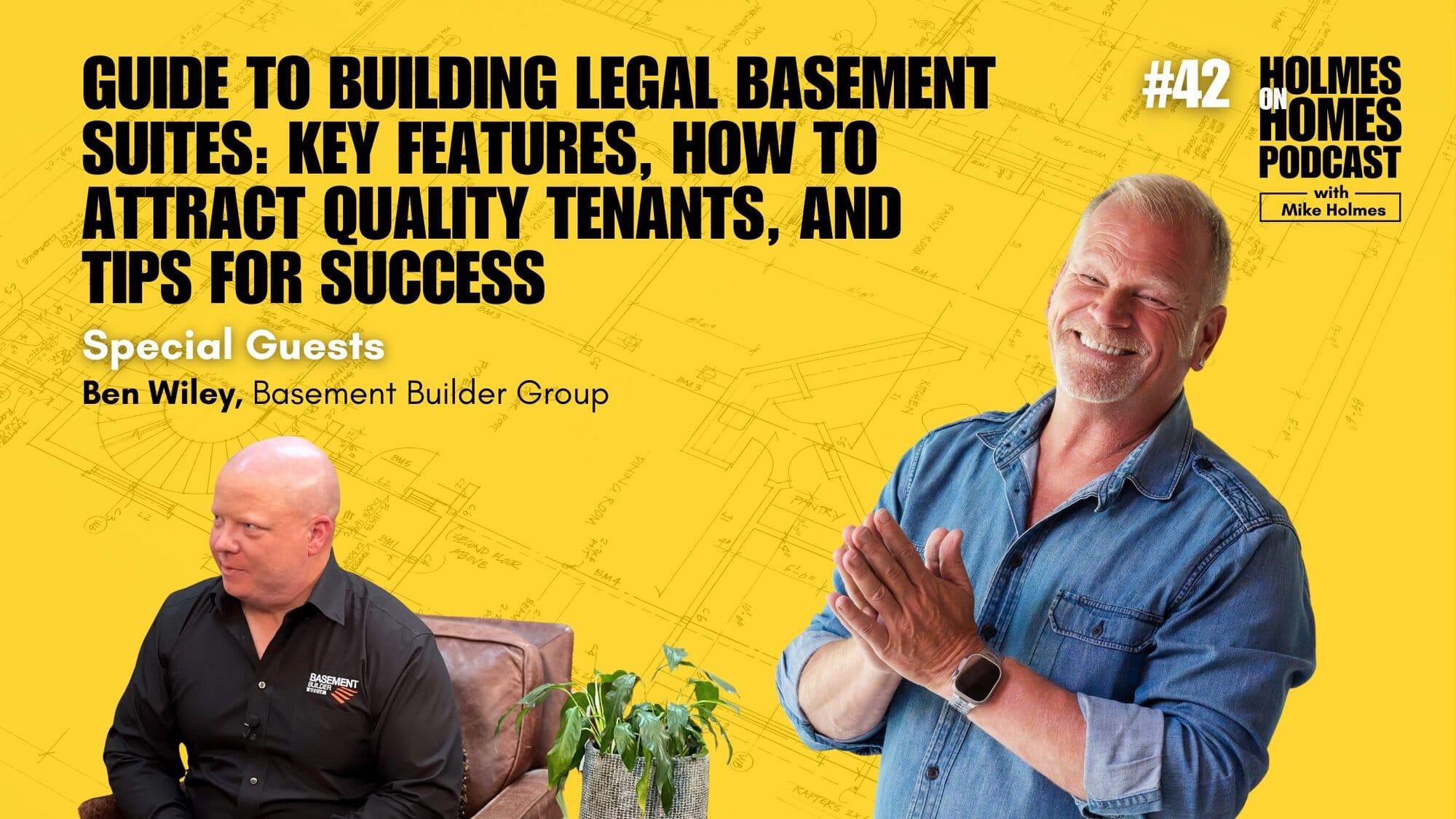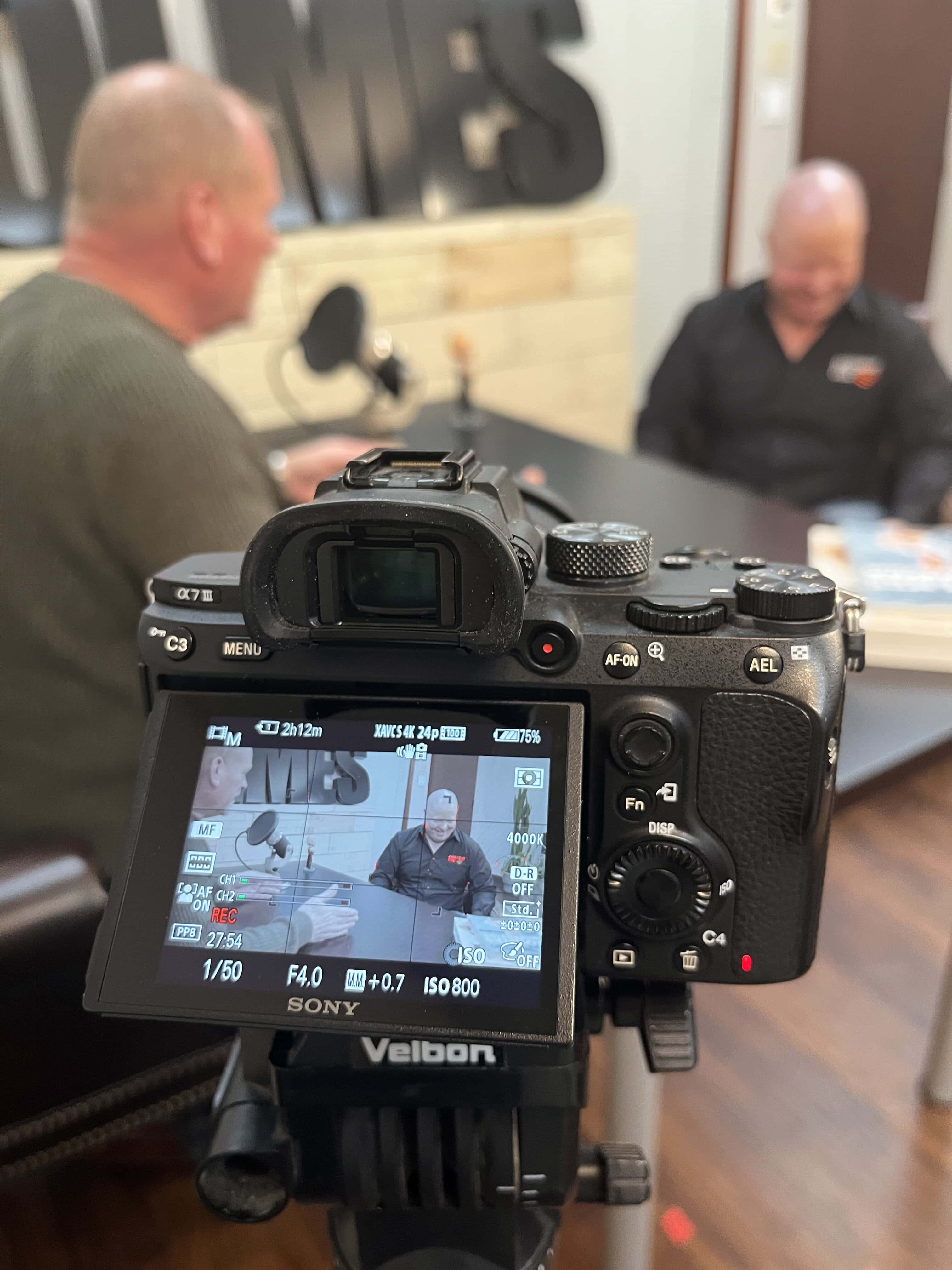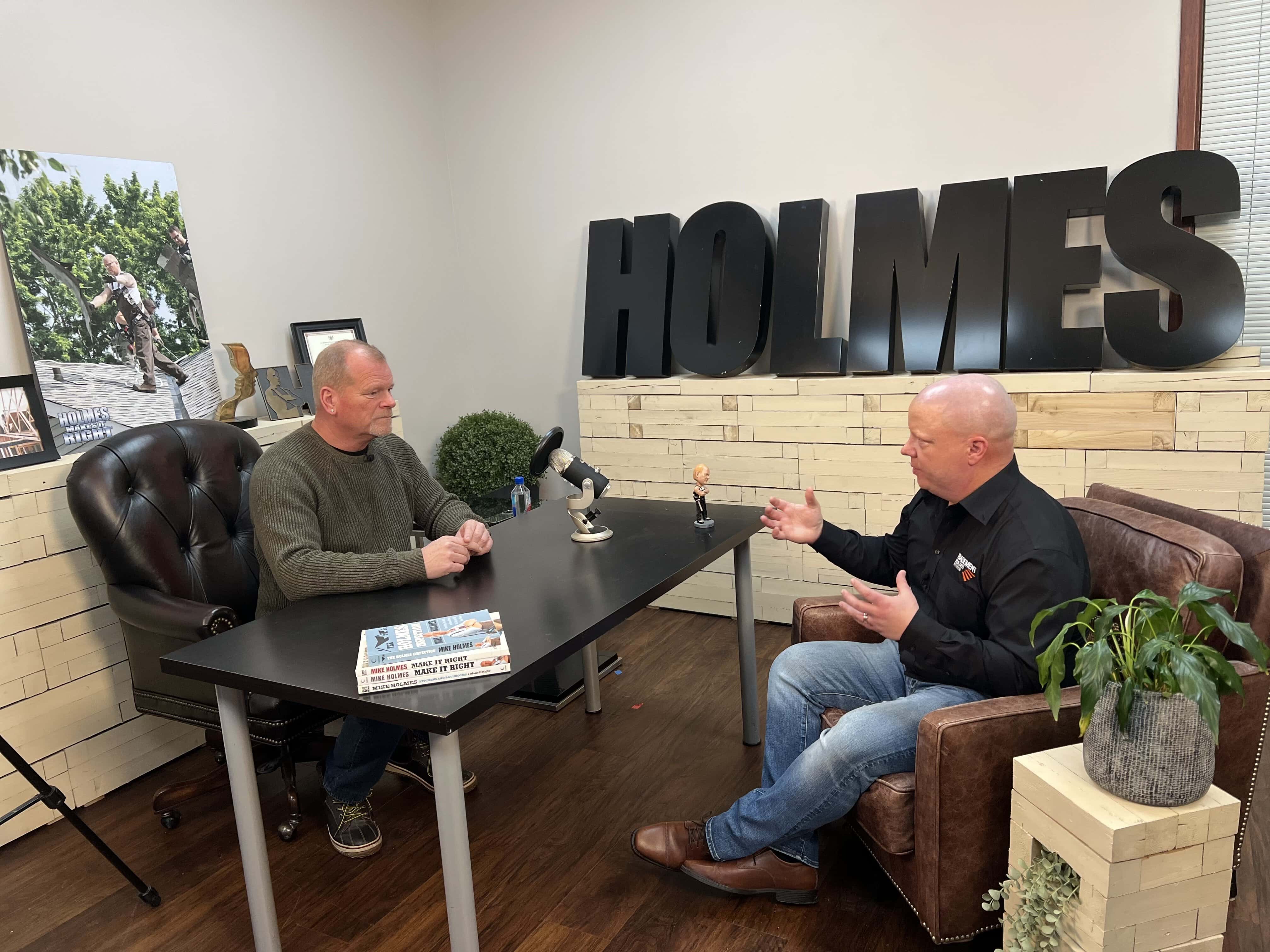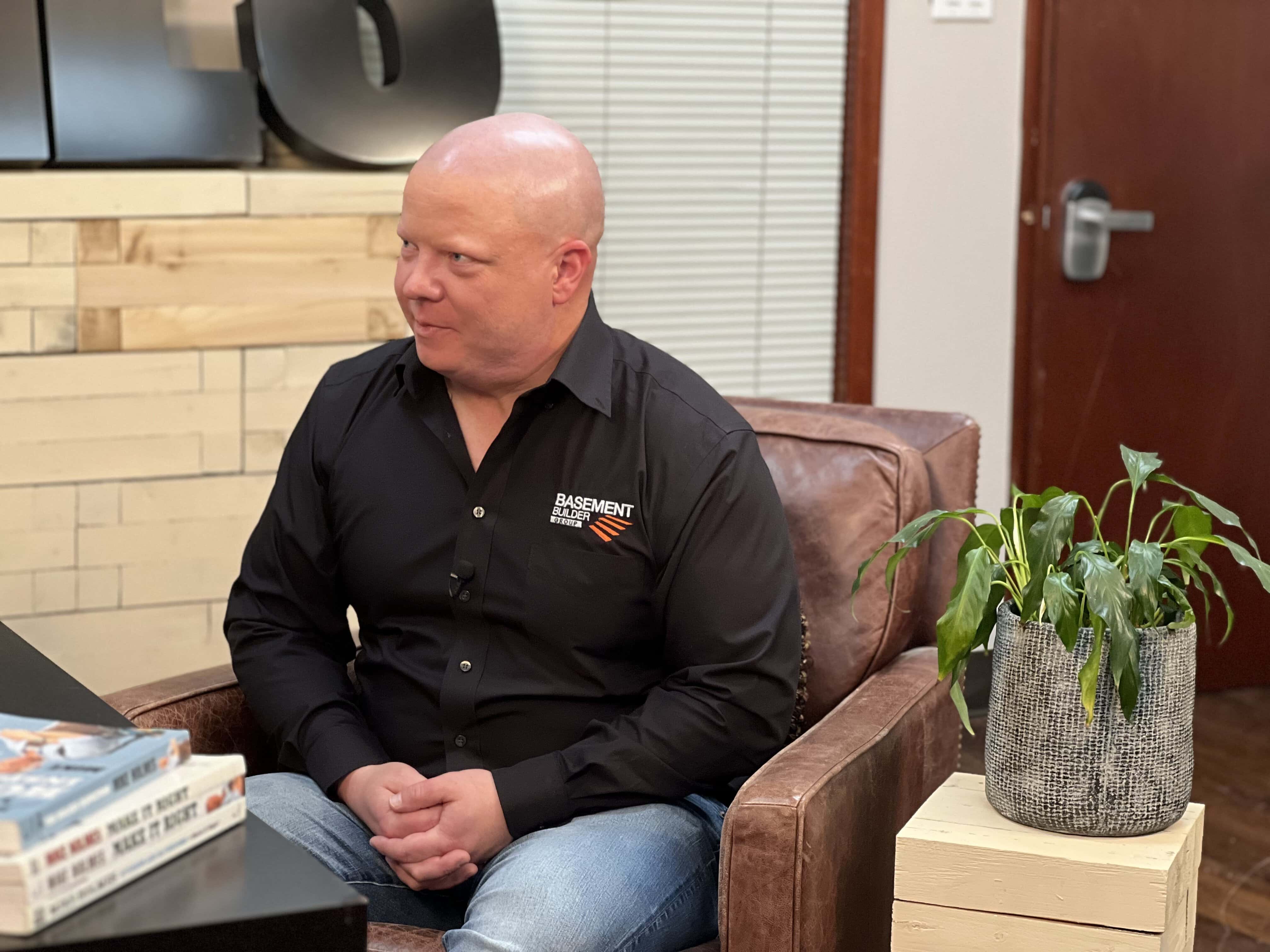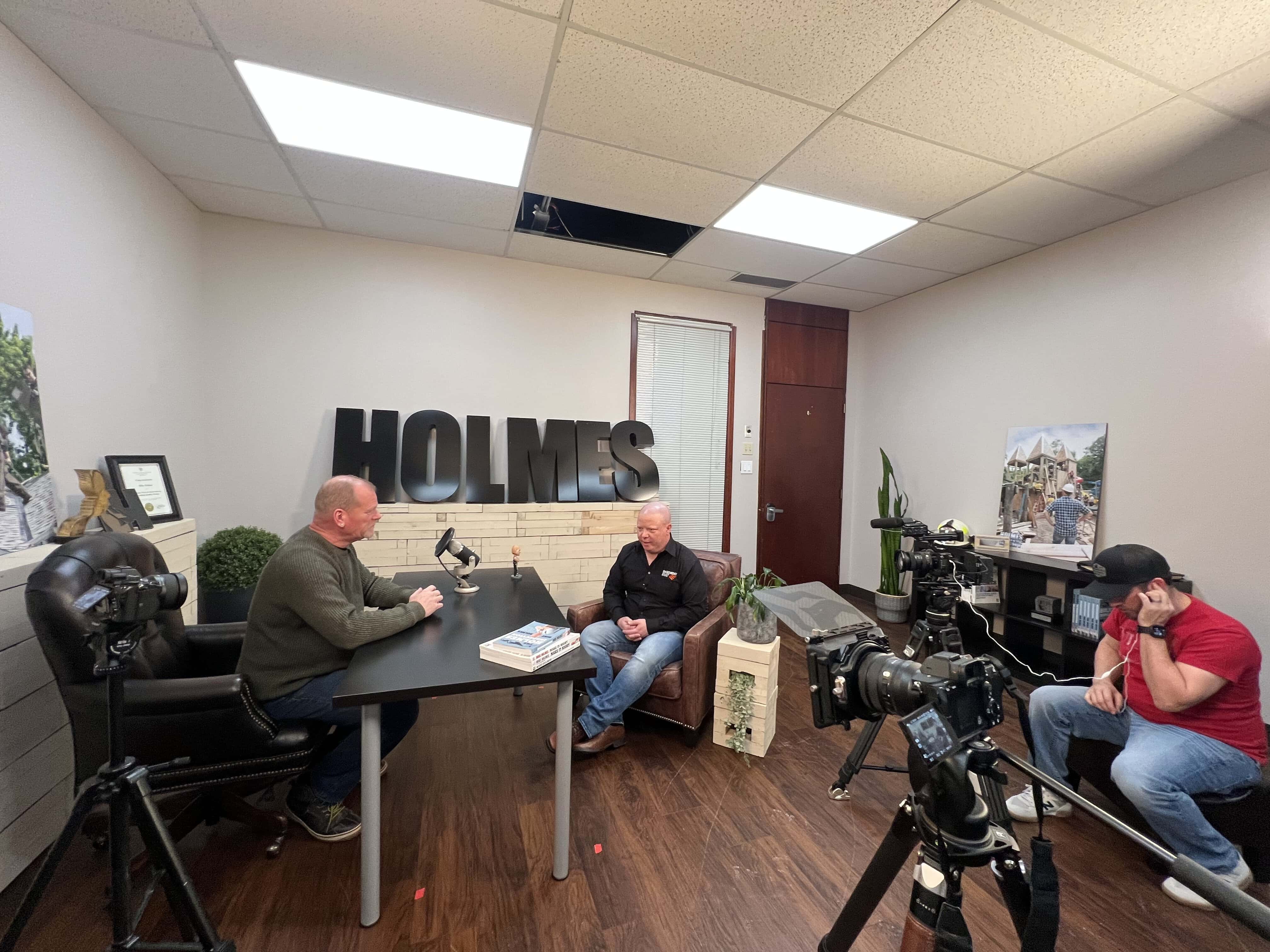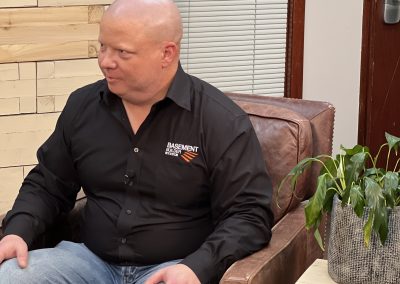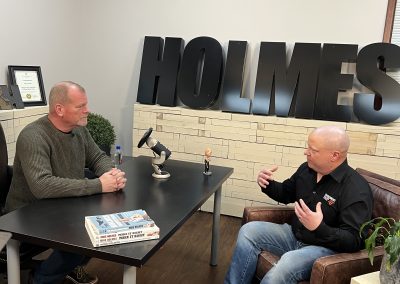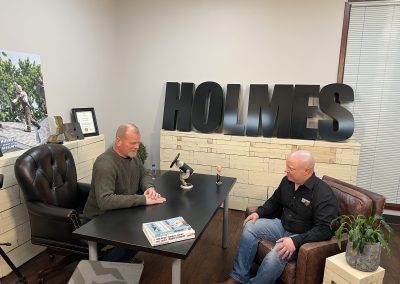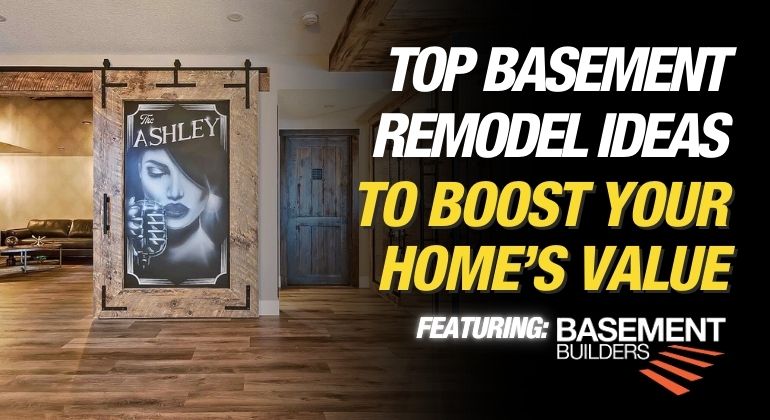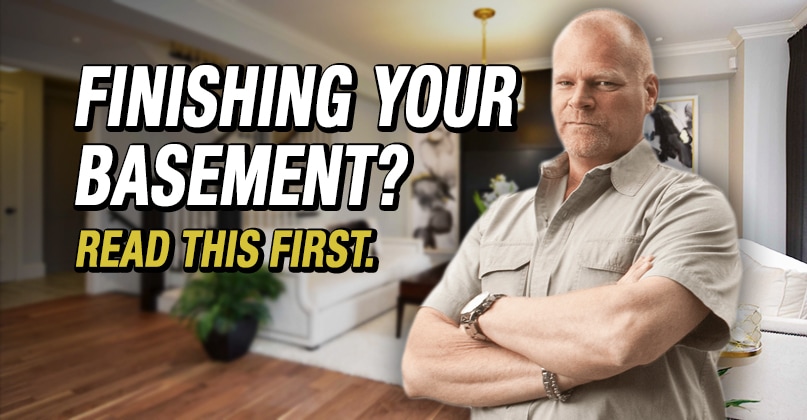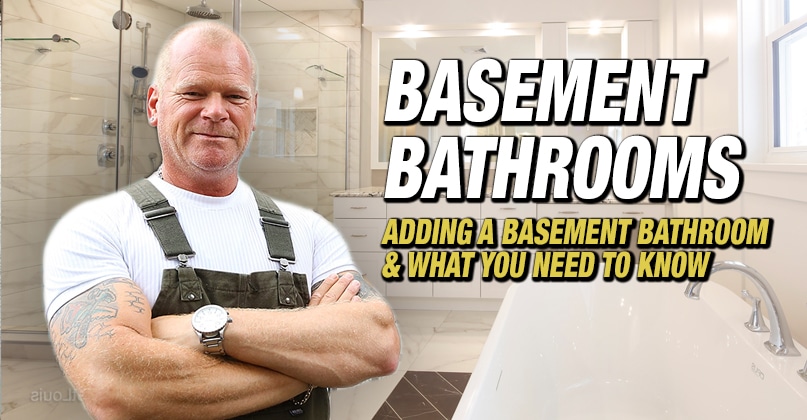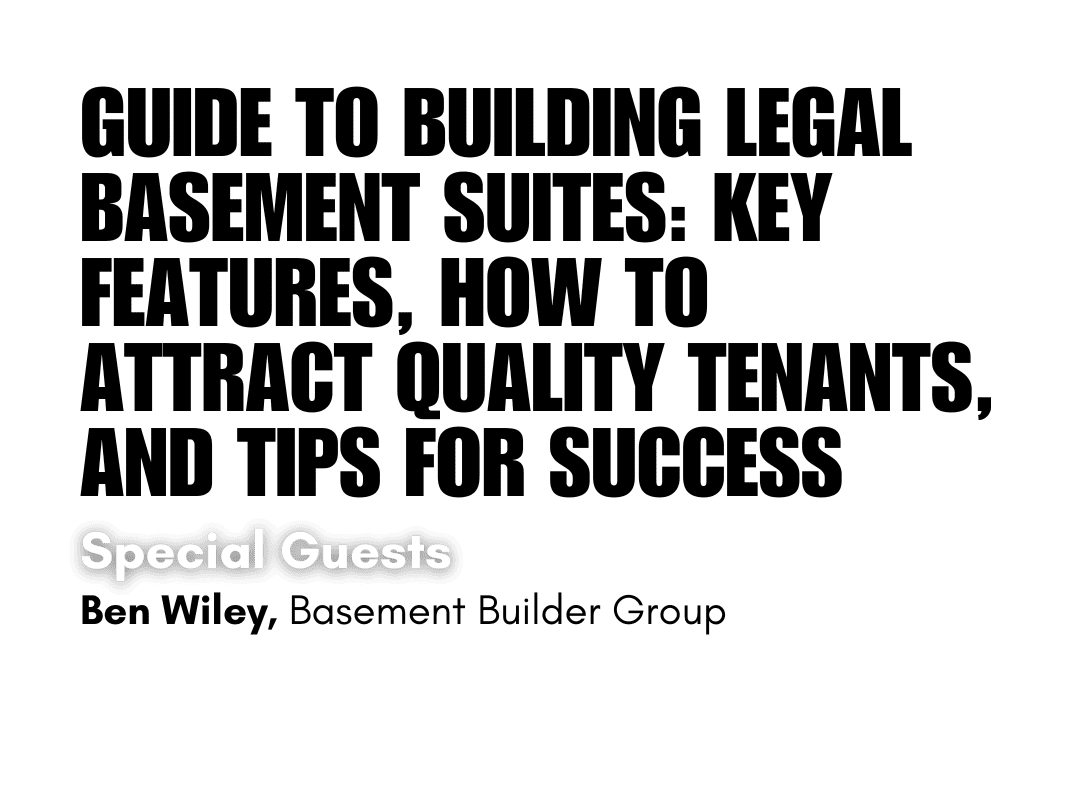
Holmes on Homes Podcast with Mike Holmes: Season 5 – Episode 4
Guide to Building Legal Basement Suite: Key Features, How to Attract Quality Tenants, and Tips for Success
Thinking of turning your basement into an income suite? Building a legal basement suite is a great way to generate extra income. However, it’s important to understand the requirements of building a legal basement suite. It’s also important to understand the difference between legal and illegal basement suites, especially when it comes to compliance with local building codes and safety requirements.
On this episode of the Holmes on Homes Podcast, Mike Holmes sits down with Ben Wiley, Founder & Construction Manager at Basement Builder Group, to discuss the ins and outs of building legal basement suites to explore the key aspects of building a legal basement suite. They discuss the features required for a basement to be considered legal, the importance of obtaining the right permits, and how to avoid common mistakes in the process.
Mike and Ben also talk about how to design a space that attracts quality tenants and maintains its value, plus tips on making the most of a small basement space, meeting egress window requirements, and selecting the best flooring materials. They also cover the challenges of building basement suites in Calgary and what to keep in mind when buying a home that already has a basement you want to convert into a suite.
Ben also shares more about the Basement Builder Group Dealership Program—a unique opportunity for contractors and homebuilders to partner with Basement Builder Group and leverage their proven expertise, strong focus on quality, and commitment to client satisfaction in legal basement suite construction.
Are you ready to turn your basement into a profitable income suite? Tune in to learn how to make your basement work for you and why Basement Builder Group is the team to help you get there!
SPECIAL GUESTS
Basement Builder Group is a Calgary-based company with over 15 years of experience in basement development and renovation. They have completed over 3,000 basements, specializing in high-quality basement renovations and legal basement suites. Customer satisfaction and craftsmanship are their top priorities, adhering to higher-than-average standards with tradespeople among the best in the industry.
Recognizing the opportunity to expand their proven systems, marketing, and business model, they evolved into Basement Builder Group, offering exclusive licensing opportunities across North America.
Learn more about Basement Builder Group and their dealership program here.
Ask Mike Holmes
Mike and his expert industry guests answer some of the most commonly asked questions.
1. What is the difference between a legal and illegal basement suite?
A legal basement suite meets all local building codes, fire safety rules, and zoning regulations. It has proper permits, egress windows, separate ventilation, and a safe exit route. An illegal suite? No permits, missing safety features, and a major risk—not just for tenants, but for homeowners too.
2. What are the key requirements for a legal basement suite?
The exact rules vary by city, but generally, a legal basement suite needs:
- Proper permits
- A separate entrance
- Egress windows for emergency exits
- Proper ceiling height (usually 6’5” to 7’)
- Fire-rated walls and doors
- Independent heating and ventilation
- Compliance with electrical and plumbing codes
Skipping any of these could lead to big fines being paid or even put lives at risk and you don’t want that liability.
3. How much does it cost to build a legal basement suite?
Costs vary by location and size, but expect to spend $50,000–$150,000 for a fully legal suite. It also depends on permits, upgrades (like soundproofing), and whether your basement already meets key building codes.
4. Do you need a permit to build a basement suite?
Yes! A permit is mandatory to ensure the suite meets safety and zoning laws. Without it, you could face fines, insurance issues, and even eviction of tenants.
5. What are egress window requirements for a basement suite?
An egress window is a must-have for fire safety. In most places, it must be at least 15 inches in any direction, with an opening big enough for someone to escape. If your basement windows are too small, you’ll need to enlarge or replace them to make the suite legal.
6. What are the best flooring options for basement suites?
Basements need moisture-resistant, durable flooring. The best options? Luxury vinyl plank (LVP), tile, or engineered hardwood. Avoid carpet—it traps moisture and can lead to mould.
7. How can I make a small basement suite feel bigger?
Maximize space with light-colored walls, open layouts, and multi-functional furniture. Use pot lights to brighten up the space and pocket doors to save room. Good design makes a basement feel more like an apartment and can help attract quality tenants.
8. What should I check before buying a home with a basement suite?
Check if it’s legally registered—don’t just take the seller’s word for it. Look for permits, fire separations, proper ventilation, and separate utility meters. If it’s not designed as a legal suite, factor in the cost of bringing it up to code before buying. This can include adding a separate entrance, egress windows, need to change the layout of the space, having a separate electrical panel and heating/cooling ducts.
9. What are the biggest challenges of building a basement suite in Calgary?
Calgary has strict zoning laws and fire safety codes. If your home is in an area not zoned for secondary suites, you may need to apply for a rezoning permit. Also, some basements don’t meet height requirements—so check before starting renovations.
Looking for More Expert Tips and Advice?
Check out Mike’s Advice and Holmes on Homes Podcast Blog.
About the Holmes on Homes Podcast with Mike Holmes
The Holmes on Homes Podcast, hosted by Mike Holmes, seasoned professional contractor and TV host, is your go-to source for expert insights on home improvement, safety, maintenance, skilled trades, and industry innovation. Each episode features expert guests and valuable takeaways, covering everything from choosing the right materials, aging in place, and electrical safety to the future of construction with 3D printing, pondscaping, and even raising healthy pets in a healthy home.
Whether it’s renovating for accessibility, improving indoor air quality, or tackling the skilled trades stigma, Mike and his guests break it all down with real talk, hard truths, and the no-nonsense advice that’s made him a trusted name in home improvement. Because when it comes to building better, it pays to Make It Right.
With over 40 years of experience, Mike provides practical advice and industry best practices, empowering homeowners to make informed decisions. Whether you’re a first-time homeowner, professional contractor, or planning a major renovation, this podcast is your go-to source for everything home-related.
WATCH MORE EPISODES
S5 | EPISODE #2
“How Do You Make a Home Wheelchair Accessible? Must-Have Modifications & How to Find the Right Contractor” What are the best wheelchair accessible home modifications? How do you make a home wheelchair accessible on a budget? The best wheelchair accessible home modifications include ramps or vertical lifts for entry, as well as wider door frames and durable flooring, for both comfort and safety.
S5 | EPISODE #3
“What Are the Most Popular Aging-in-Place Remodeling Projects? Top Home Modifications for a Safe, Comfortable Forever Home” As we age, our homes need to evolve with us, and making the right modifications can help ensure your forever home is functional, accessible, and safe for the long term. So what are the best modifications for aging in place?
S5 | EPISODE #7
“What Solutions Are Available to Improve Indoor Air Quality? Air Purifiers, Vent Fans & More” Did you know that indoor air can be up to 5 times more polluted than outdoor air? Poor indoor air quality can affect everything from your health to your comfort. So what are the best solutions for improving indoor air quality?
S5 | EPISODE #8
“How do ERVs (Energy Reovery Ventilators) Work? How Energy Recovery Ventilators Improve Your Home’s Air Quality” Did you know that ventilation systems can dramatically improve your home’s air quality and energy efficiency? Want to improve your home’s air quality and save on energy bills? ERVs (Energy Recovery Ventilators) are the key to achieving both. But how do they work, and how are they different from HRVs (Heat Recovery Ventilators)?
